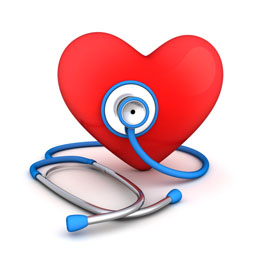It is not surprising that in a year, medical professionals evaluate nearly million cases of heart pain. This article is an overview about the various aspects surrounding this common medical disorder.

Although, a sharp heart pain can be an indicative of a heart attack, fortunately, in most cases, it is not. Meaning, if you are suffering from a sharp chest pain, then it does not necessarily have to do anything with your cardiovascular system. However, this does not justify the reason of overlooking its symptoms and delaying a medical check up.
Symptoms Accompanying Pain In the Chest Area
The symptoms of the disorder, as said, may be related to cardiovascular problems and even non-cardiovascular issues. So, those associated with cardiac problems include crushing pain which is felt radiating to the back, shoulders, arms, neck, jaw and more prominently in the left arm. This pain may vary in intensity and may be short-lived or recurring. These symptoms are accompanied by tightness or a feeling of fullness in the chest and breathing problems such as shortness of breath. Sweating, dizziness and nausea may also occur.
Symptoms such as a sour taste in the mouth, having difficulty in swallowing food and drink, increasing or decreasing pain on moving the body and the feeling of a burning sensation behind the breastbone, all are classified under non-cardiac problems which are related to acute heart pain. Some people may also feel some kind of tenderness when they push their chest and they might also feel an increasing pain upon breathing heavily, coughing or sneezing.
Responsible Factors
A sharp stabbing heart pain may be the manifestation of several disorders in the body. Some causes, are again related to the cardiovascular system and they include heart attack, aortic dissection (life-threatening condition in which there is bleeding into and along the wall of the aorta, the major artery leaving the heart), coronary spasm (a condition wherein, arteries that supply blood to the heart go into spasm), pericarditis (inflammation of the pericardium - a serous membrane with two layers that surrounds the heart), myocarditis [inflammation of the myocardium (the muscular tissue of the heart)] and hypertrophic cardiomyopathy (a disorder in which the heart muscle is so strong that it does not relax enough to fill with the heart with blood and so has reduced pumping ability).
Certain digestive disorders may also cause the same. Common ones include heartburn, hiatal hernia (hernia resulting from the protrusion of part of the stomach through the diaphragm), achalasia, gallbladder or pancreas disorders and esophageal spasm. Other causes include those related to musculoskeletal and respiratory systems. The former includes costochondritis, sore muscles, and injured ribs nerves. The respiratory causes are pulmonary embolism (blockage of the pulmonary artery by foreign matter or by a blood clot), pulmonary hypertension and asthma. People who suffer from panic attack, shingles or those who are suffering from cancer, may also experience sharp pain in chest.
As far as the treatment is concerned, it mainly centers around addressing the causes of the disorder. For instance, if the causes are diagnosed to be heart problems, then the doctor will prescribe medications accordingly. Likewise, if heartburn happens to be the cause, then an over-the-counter medication will be good enough for the treatment.
Sharp heart pain may not raise severe health concerns in most cases, but not in all cases. There may be episodes wherein, the problem might be worse than you think. So, wise decision lies in getting a hasty evaluation of your condition from a doctor, rather than sitting over it and contemplating over the symptoms.


 Although, a sharp heart pain can be an indicative of a heart attack, fortunately, in most cases, it is not. Meaning, if you are suffering from a sharp chest pain, then it does not necessarily have to do anything with your cardiovascular system. However, this does not justify the reason of overlooking its symptoms and delaying a medical check up.
Although, a sharp heart pain can be an indicative of a heart attack, fortunately, in most cases, it is not. Meaning, if you are suffering from a sharp chest pain, then it does not necessarily have to do anything with your cardiovascular system. However, this does not justify the reason of overlooking its symptoms and delaying a medical check up.